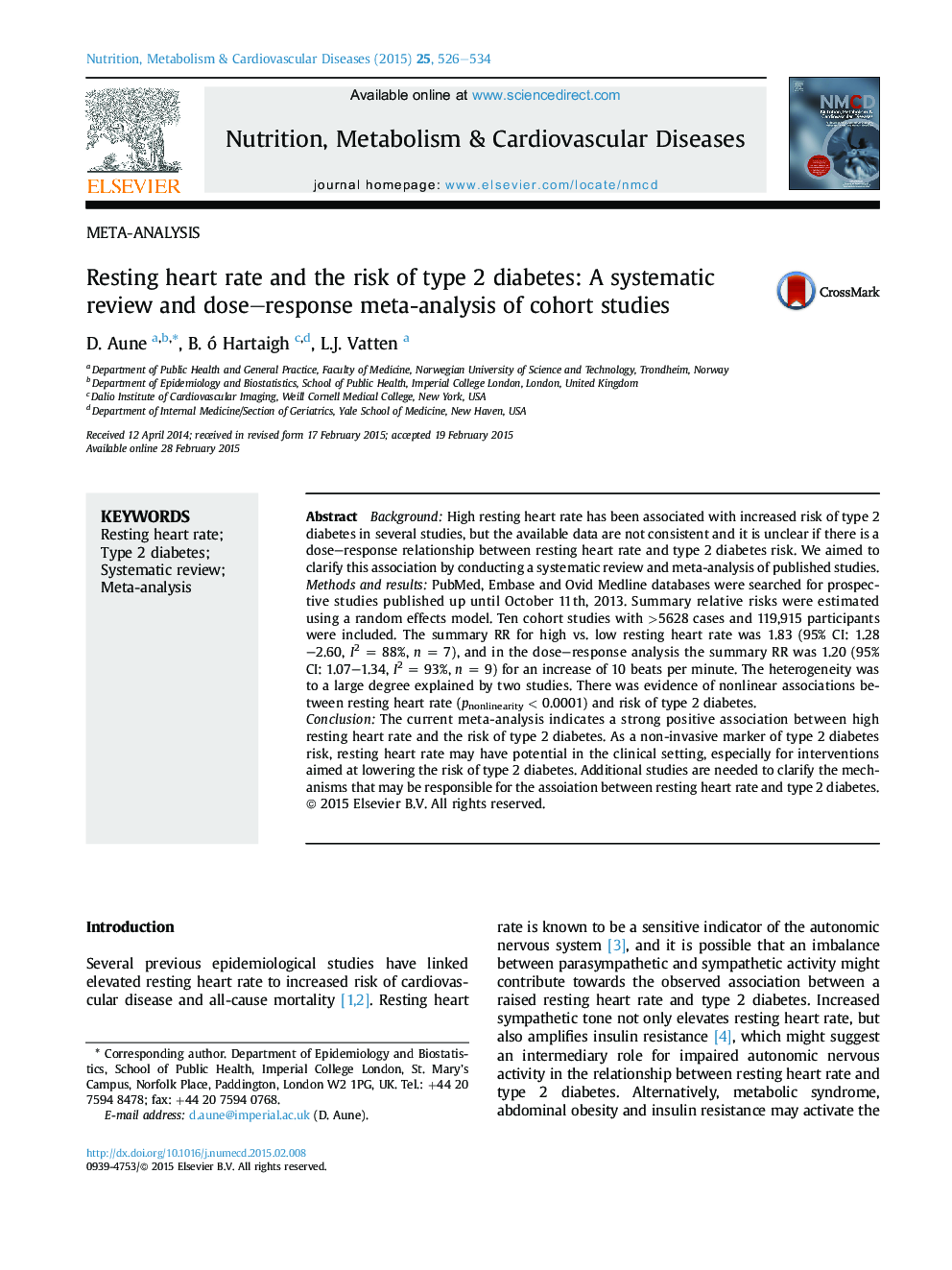| Article ID | Journal | Published Year | Pages | File Type |
|---|---|---|---|---|
| 5996580 | Nutrition, Metabolism and Cardiovascular Diseases | 2015 | 9 Pages |
BackgroundHigh resting heart rate has been associated with increased risk of type 2 diabetes in several studies, but the available data are not consistent and it is unclear if there is a dose-response relationship between resting heart rate and type 2 diabetes risk. We aimed to clarify this association by conducting a systematic review and meta-analysis of published studies.Methods and resultsPubMed, Embase and Ovid Medline databases were searched for prospective studies published up until October 11th, 2013. Summary relative risks were estimated using a random effects model. Ten cohort studies with >5628 cases and 119,915 participants were included. The summary RR for high vs. low resting heart rate was 1.83 (95% CI: 1.28-2.60, I2 = 88%, n = 7), and in the dose-response analysis the summary RR was 1.20 (95% CI: 1.07-1.34, I2 = 93%, n = 9) for an increase of 10 beats per minute. The heterogeneity was to a large degree explained by two studies. There was evidence of nonlinear associations between resting heart rate (pnonlinearity < 0.0001) and risk of type 2 diabetes.ConclusionThe current meta-analysis indicates a strong positive association between high resting heart rate and the risk of type 2 diabetes. As a non-invasive marker of type 2 diabetes risk, resting heart rate may have potential in the clinical setting, especially for interventions aimed at lowering the risk of type 2 diabetes. Additional studies are needed to clarify the mechanisms that may be responsible for the assoiation between resting heart rate and type 2 diabetes.
